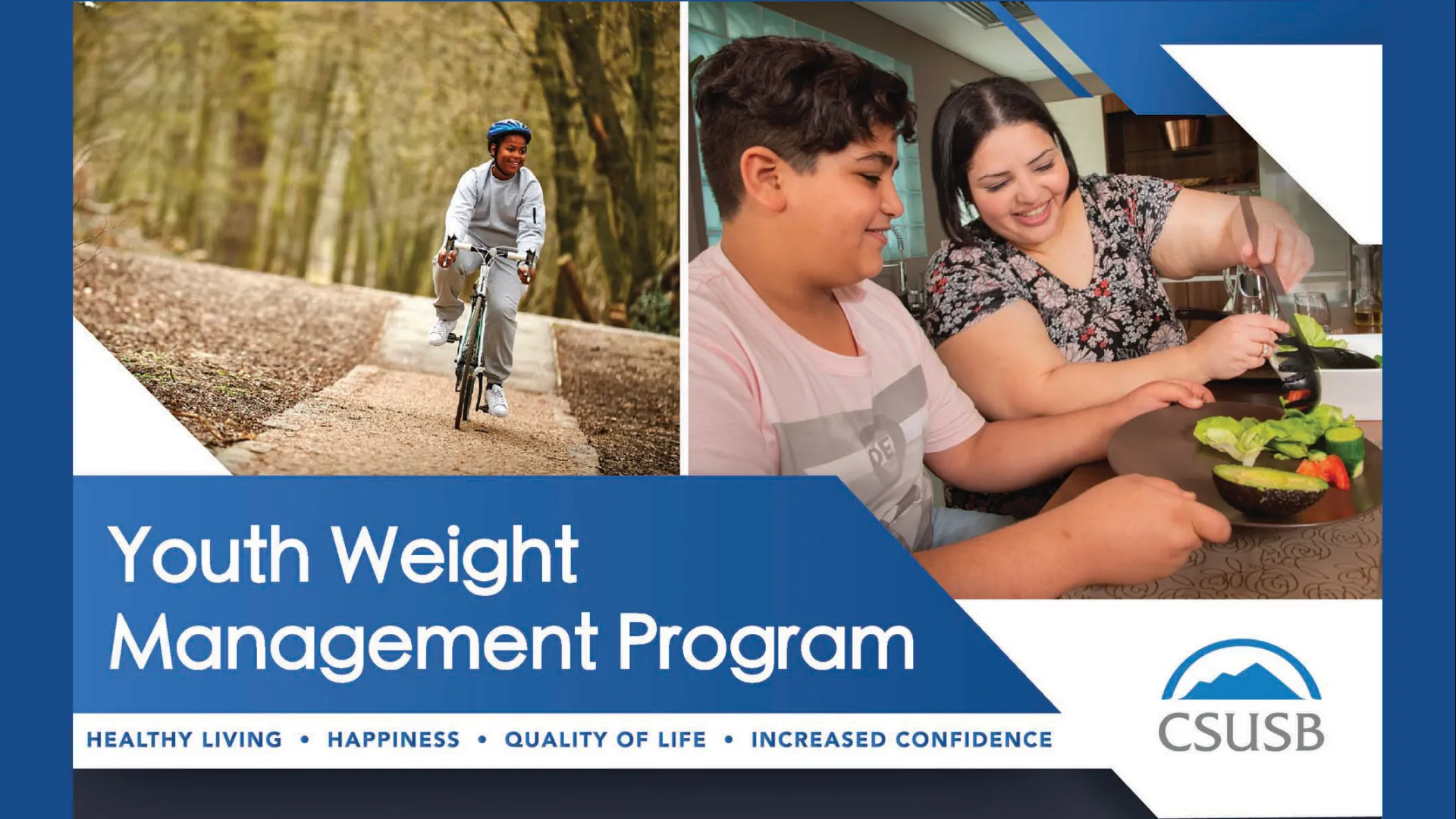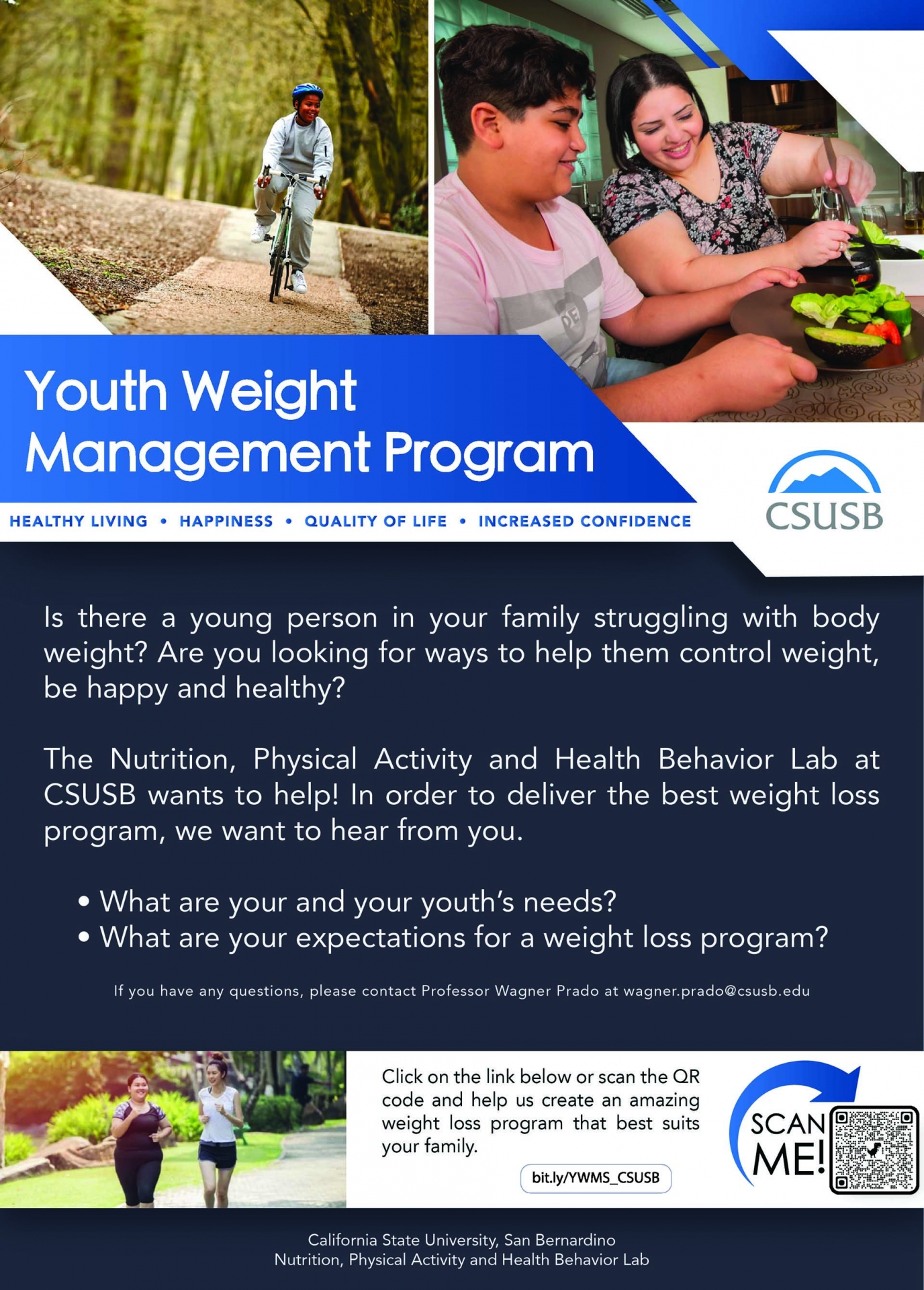Joe Gutierrez | Office of Strategic Communication | (951) 236-4522 | joeg@csusb.edu

Parents and families of adolescents struggling with weight issues or looking for ways to help their children control their weight are being sought to answer an online survey, available in English and Spanish, regarding a future weight management program for adolescents in the Inland Empire.
The Youth Weight Management Program, which is still in the planning stages, will help determine ways to help adolescents control their weight, be happy and healthy, said Wagner Prado, an assistant professor of kinesiology at Cal State San Bernardino. The program will be offered by the CSUSB Nutrition, Physical Activity and Health Behavior Lab, said Prado.
The program developed a Youth Weight Management Program online survey to help determine adolescents’ and their caregivers’ needs, said Prado. The program will consist of faculty members led by Neal Malik, an assistant professor in the Department of Health Science and Human Ecology; Bryan Haddock, chair of the Department of Kinesiology; Mara Lofrano-Prado, a lecturer in the Department of Psychology; and Prado.
The need for the program comes given that, in California, childhood obesity prevalence is about 39% while in San Bernardino County the prevalence is 42%. According to the San Bernardino County Department of Public Health Community Indicators, 40% of children have obesity or are overweight.
There is also wide variation of student weight status according to ethnicity. According to San Bernardino County indicators, the percentage of students classified as overweight or obese are: Pacific Islander children – 60.7 percent, Latinx – 46.9%, Native American – 43%, African American – 39.8, two or more races – 36.5%, white – 32.6%, Filipino – 28.5% and Asian – 27.6%.
The program will eventually serve those living in the cities of San Bernardino, Riverside, Redlands, Highland and other nearby cities.
The need for the program came with the determination to help transform people’s lives, especially adolescents, Prado said.
“The harmful effects of obesity on social, psychological and overall health are already well documented,” Prado said. “Adolescents with obesity have a lower quality of life than their normal weight peers. From a psychological perspective, childhood obesity leads to low self-esteem, emotional distress, depression, anxiety, eating disorders, suicidal thoughts, social isolation, negative self-image and negative stigmas, among others. These individuals may suffer discrimination and stigmatization as well. Lastly, they are more likely to experience premature death.
“What motivates us is to have a meaningful impact on these adolescents and their family’s quality of life,” Prado said. “We want these kids living a happy and healthier life.”
The need for parental input on what they want for their children is especially crucial.
“It is clear that the gold standard care to obesity with clinical, psychological and nutritional counseling with physical activities works,” Prado said. “However, the adherence rates to such programs are really low, which can make this approach ineffective from a public health perspective.”
Also, the long-term success rate are frustrating.
“We know that being healthy may not motivate adolescents to engage in weight management programs,” Prado said. “But we have no idea what motivates them, what they want, or what their parents want in order to support their children to engage in such programs. Hearing the parents’ thoughts and their input are mandatory to increase adherence to the program and long-term success. We have no doubt that this program will produce a significant impact on the health of the Inland Empire.”
For more information, email Wagner Prado at wagner.prado@csusb.edu.
